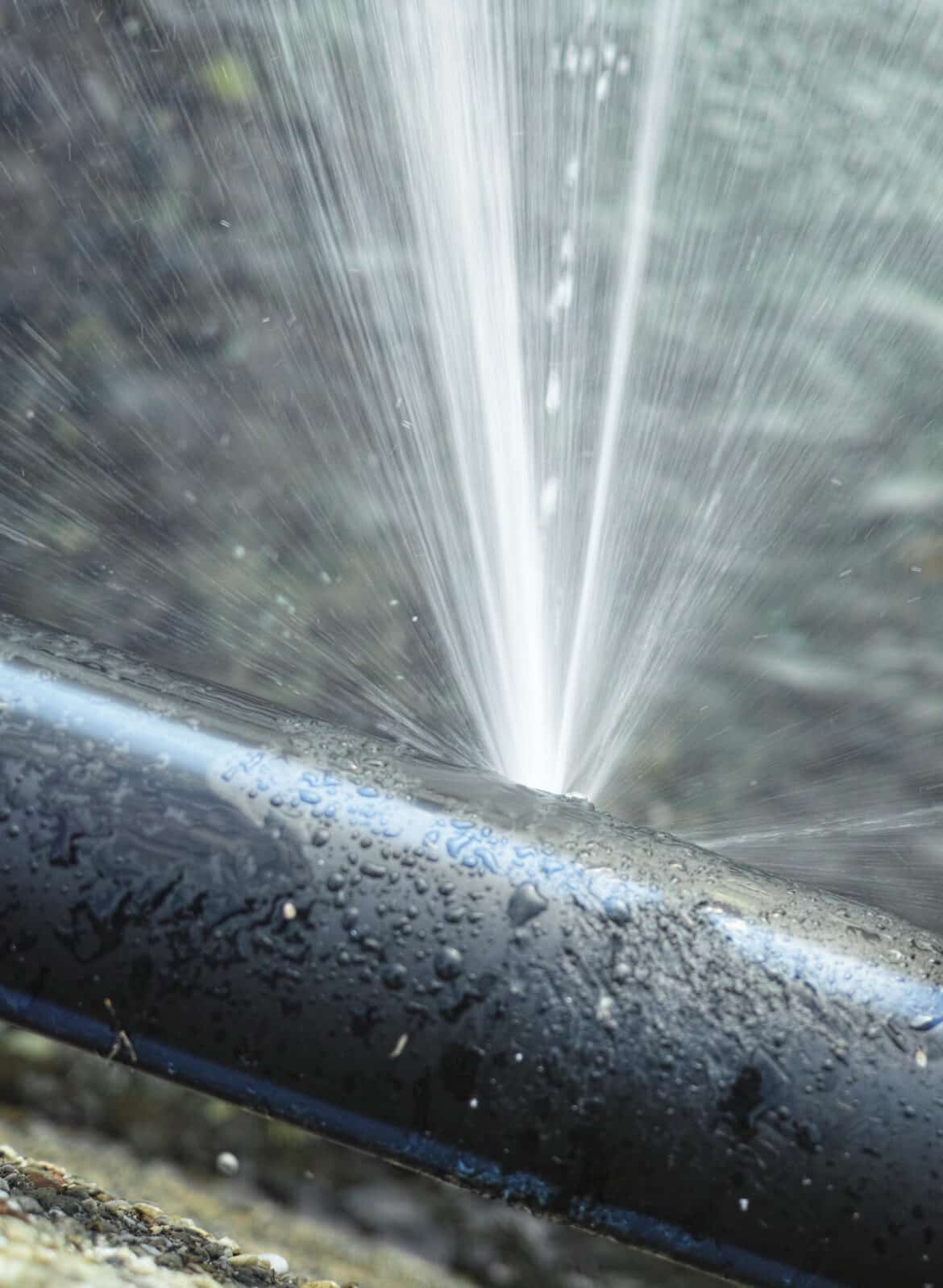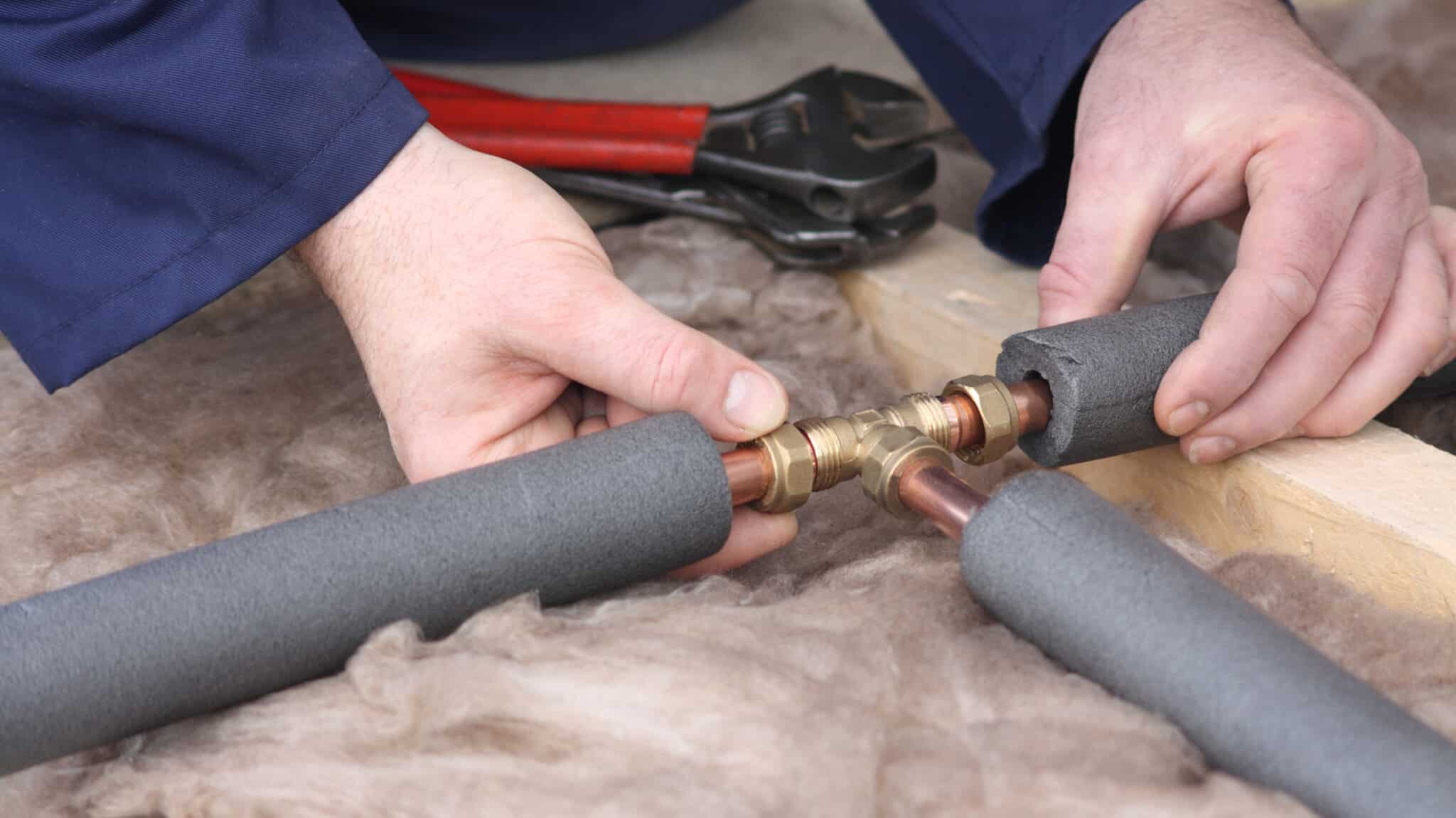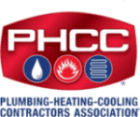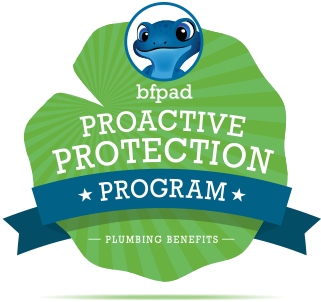
How to Prevent Summer Pipe Bursts
Causes of Pipe Bursts
- Corrosion: Over time, pipes may corrode due to water minerals, leading to weakness and potential bursts.
- High Water Pressure: Excessive pressure can stress pipes, causing them to burst if not regulated.
- Temperature Changes: Extreme heat can cause pipes to expand and possibly burst, particularly if they are old or not well-maintained.
Common Locations for Pipe Bursts
- Basements: Often cooler and potentially damp, making pipes more susceptible to changes in external temperatures.
- Exterior Walls: Pipes in these areas are more exposed to external heat and sunlight.
- Attics and Crawl Spaces: These locations can experience significant temperature swings, which can stress pipes.
Summer-Specific Risks
- Increased Water Usage: Summer activities like filling swimming pools and increased showering can put additional strain on your plumbing system.
- Exposure to Sunlight: Pipes that are directly exposed to the sun can degrade and become more fragile over time.
Preventative Measures
- Insulation: Wrap pipes in foam insulation to help regulate their temperature, especially those exposed to direct sunlight or in unconditioned spaces like garages.
- Regular Maintenance: Schedule inspections to identify and address corrosion, weak joints, or other potential issues before they lead to bursts.
- Install Pressure Regulators: To help manage the risk of high water pressure, consider installing pressure regulators that maintain a consistent and safe pressure level throughout your plumbing system.
Immediate Actions to Take in Case of a Burst
- Shut Off Water: Immediately turn off the main water supply to reduce flooding and water damage.
- Drain the Pipes: Open all faucets to drain the remaining water in the pipes, which relieves pressure and can minimize further damage.
- Temporary Fixes: Apply a pipe clamp or wrap a rubber strip around the burst area as a temporary fix until professional help can arrive.
Long-Term Solutions
- Pipe Replacement: Consider replacing old or corroded pipes with modern materials like PEX or copper, which can better withstand temperature changes and water pressure.
- Upgrade Insulation: Upgrade insulation in key areas like the attic, basement, and external walls to provide better thermal protection for pipes.
- Regular Professional Check-Ups: Engage a professional to inspect your plumbing system annually, especially before the peak summer months, to ensure everything is in optimal condition.
Ever wondered what causes pipe bursts and how to prevent them?
Pipe bursts can be a homeowner’s nightmare, especially during the summer. This section will delve into the causes and risks associated with pipe bursts, helping you understand how to protect your home.
What Causes Pipe Bursts?
Several factors contribute to pipe bursts. Corrosion weakens pipes over time, making them more susceptible to breaking. High water pressure can also cause pipes to burst. When the pressure inside the pipes exceeds their capacity, they fail. Temperature changes play a significant role as well. Extreme heat or cold causes pipes to expand and contract, leading to cracks and bursts.
Common Locations for Pipe Bursts
Pipe bursts often occur in specific areas of a home. Basements are particularly vulnerable due to their lower temperatures and proximity to the ground. Exterior walls are another common location, as they are more exposed to the elements. Attics and crawl spaces can also experience pipe bursts, especially if they are not properly insulated.
Summer-Specific Risks
Summer introduces unique risks that can lead to pipe bursts. As temperatures rise, the metal and plastic in pipes expand. This expansion can cause weak spots in the pipes to fail. Additionally, increased outdoor activities and higher water usage during the summer put extra pressure on the plumbing system.
Understanding these causes and risks is the first step in preventing pipe bursts. By being aware of where bursts are likely to occur and how summer conditions affect your pipes, you can take proactive measures to protect your home.
How Summer Heat Affects Pipes
Why do pipes burst more in summer? The answer lies in how summer heat affects pipes. When temperatures soar, so does the risk of pipe damage. This section explores the effects of summer heat on plumbing systems.
Increased Water Usage and Pressure
During summer, households typically use more water. Whether it’s for watering lawns, filling pools, or simply taking more showers, the demand on the plumbing system increases. This higher demand can lead to increased water pressure, which stresses the pipes. Over time, the added pressure can cause weak points in the pipes to burst.
Expansion and Contraction
Pipes expand and contract with temperature changes. In summer, the extreme heat causes pipes, especially those made of metal, to expand. If the pipes are already compromised or weak, this expansion can lead to cracks or bursts. Similarly, if there’s a sudden temperature drop, the rapid contraction can damage the pipes.
Exposure to Sunlight
Pipes that are exposed to direct sunlight, such as those in outdoor settings or near windows, face an even greater risk. The constant exposure to UV rays can degrade the material, making the pipes brittle and more prone to breaking. Insulating these pipes or shielding them from the sun can help mitigate this risk.
Soil Movement
Summer heat can also affect the soil around your home. As the ground dries and contracts, it can shift, causing stress on buried pipes. This soil movement can lead to misalignment and eventual bursts, especially in older plumbing systems.
By understanding how summer heat impacts your pipes, you can take steps to protect your plumbing system. Implementing preventative measures will not only save you from the inconvenience of a burst pipe but also from potentially costly repairs.
Preventative Measures
Protecting your pipes from summer heat involves implementing effective preventative measures. This section covers essential steps homeowners can take to ensure their plumbing systems remain intact during the hotter months.

Insulating Pipes for Summer
One of the simplest and most effective ways to protect your pipes is by insulating them. Pipe insulation helps maintain a stable temperature, reducing the risk of expansion and contraction due to heat. Use foam pipe insulation, which is easy to install and available at most hardware stores. Focus on pipes located in attics, basements, and exterior walls.
Regular Pipe Maintenance Checks
Conducting regular pipe maintenance checks is crucial. Inspect your pipes for signs of wear and tear, such as rust, leaks, or cracks. Early detection of these issues can prevent bursts. Schedule professional inspections annually to ensure all potential problems are identified and addressed.
Installing Pressure Regulators
High water pressure is a common cause of pipe bursts. Installing a pressure regulator can help maintain safe water pressure levels throughout your home. Pressure regulators are devices that reduce the pressure from the main water supply, ensuring it doesn’t exceed safe limits. This investment can save you from significant repair costs in the long run.
Identifying Vulnerable Areas
Certain areas in your home are more prone to pipe bursts. Identifying these vulnerable areas allows you to take targeted actions. For example, pipes in unheated spaces like garages or crawl spaces are at higher risk. Use insulation and monitor these areas closely. Additionally, ensure that all outdoor pipes are adequately protected from direct sunlight and extreme heat.
Immediate Actions to Take
When a pipe bursts, quick action is crucial. Knowing the immediate steps can minimize damage and save on repair costs. Here’s what you should do right away.
Shutting Off the Main Water Supply
The first step is to shut off the main water supply. Locate the main valve, usually found in the basement, garage, or outside near the water meter. Turn it off to stop the water flow and prevent further flooding. This action buys you time to address the burst pipe without additional water damage.
Relieving Pipe Pressure
After shutting off the water, you need to relieve the pressure in the pipes. Open all the faucets in your home to drain any remaining water from the system. Start with the lowest point, like a basement sink, and work your way up. This step helps reduce the risk of further damage and makes it easier to handle repairs.
Temporary Fixes
Temporary fixes can help manage the situation until professional help arrives. Here are two quick methods:
- Using Pipe Clamps and Rubber: Wrap a piece of rubber or a thick cloth around the burst pipe. Secure it tightly with a pipe clamp or a C-clamp. This creates a temporary seal that can hold until a plumber arrives.
- Applying Epoxy Putty: Epoxy putty is a versatile solution for small leaks. Clean the area around the burst, knead the putty, and apply it to the crack or hole. Allow it to harden as per the instructions. This fix can hold for several hours or even days, depending on the severity of the burst.
Long-Term Solutions
While temporary fixes can provide immediate relief, long-term solutions are essential to prevent future pipe bursts. Investing in durable materials and regular maintenance will save you time and money in the long run.
Professional Pipe Replacement
One of the most effective long-term solutions is professional pipe replacement. If your home has old or damaged pipes, consider hiring a professional plumber to replace them. Modern materials like PEX (cross-linked polyethylene) or copper are more durable and resistant to bursts. Replacing old pipes can be costly upfront but will prevent future issues and add value to your home.
Upgrading to More Durable Materials
If replacing all your pipes isn’t feasible, consider upgrading the most vulnerable sections to more durable materials. For example, PEX pipes are flexible and can withstand extreme temperatures better than older materials. Copper pipes are also a strong choice, known for their longevity and resistance to corrosion. Focus on high-risk areas like basements, attics, and exterior walls when planning upgrades.
DIY Maintenance Tips
Regular maintenance can help extend the life of your pipes and prevent bursts. Here are some DIY maintenance tips:
- Regular Inspection Routines: Check your pipes regularly for signs of leaks, corrosion, or damage. Pay special attention to joints and connections.
- Simple Repairs You Can Do: Learn how to handle minor repairs, such as tightening loose connections or patching small leaks with epoxy putty. Having basic plumbing tools on hand can help you address issues quickly.
- Monitoring and Detection: Install water leak detectors in high-risk areas. These devices can alert you to leaks before they cause significant damage. Regularly monitor your water bill for unexpected increases, which could indicate a hidden leak.
Identifying Vulnerable Areas
Certain areas in homes are more prone to pipe bursts, especially during summer. This section focuses on identifying and safeguarding vulnerable areas in homes in Allen, Frisco, and McKinney.
Pipes in Allen Homes
Allen homes often feature pipes in attics and crawl spaces. These areas experience extreme temperature fluctuations, making them susceptible to pipe bursts. Regularly inspect these spaces for signs of leaks or wear.
Consider adding insulation or using heat-resistant materials to protect these pipes from summer heat. Additionally, be mindful of underground pipes in Allen, as shifting soil due to temperature changes can impact their integrity.
Pipes in Frisco Homes
Frisco homes frequently have outdoor pipes and extensive irrigation systems. These pipes are exposed to direct sunlight, which increases the risk of heat damage. Insulate outdoor pipes and add protective covers to shield them from UV rays.
Regularly check irrigation systems for leaks or damage caused by increased summer usage. Ensuring these systems are in good condition helps prevent unnecessary water pressure on your plumbing.
Pipes in McKinney Homes
McKinney homes often include basements and older plumbing systems. Basements, though cooler, still require regular inspections for moisture and leaks. Older pipes are more prone to bursts due to wear over time.
Upgrading old pipes to more durable materials like PEX or copper can help. Pay special attention to pipes near exterior walls, as these are more exposed to temperature fluctuations and may require additional insulation or protection.
Immediate Actions to Take
When a pipe bursts, acting swiftly can significantly reduce damage and repair costs. Here are the immediate steps you need to take to mitigate the situation.
Shutting Off the Main Water Supply
The first thing to do when you discover a burst pipe is to shut off the main water supply. This valve is typically located in the basement, garage, or outside near the water meter. Turning off this valve stops the flow of water, preventing further flooding and damage. Knowing the location of your main water shut-off valve beforehand can save precious time in an emergency.
Relieving Pipe Pressure
Once the water is off, the next step is to relieve the pressure in your pipes. Open all the faucets in your home, starting with the lowest one, such as a basement sink, and moving to the highest. This process allows any remaining water to drain out, reducing the pressure and preventing additional leaks or bursts.
Temporary Fixes
While waiting for a plumber, temporary fixes can help manage the situation. Here are a couple of methods:
- Using Pipe Clamps and Rubber: Wrap a piece of rubber or a thick cloth around the burst section of the pipe and secure it tightly with a pipe clamp or a C-clamp. This creates a temporary seal that can hold until professional help arrives.
- Applying Epoxy Putty: Clean the area around the burst, knead the epoxy putty, and apply it directly to the crack or hole. Allow it to harden according to the manufacturer’s instructions. This temporary fix can hold for several hours or even days, depending on the severity of the burst.
Monitoring and Detection
To protect your home from unexpected pipe bursts, it’s vital to implement effective monitoring and detection strategies. Early detection of potential issues can prevent extensive damage and costly repairs.
Using Leak Detection Systems
Leak detection systems are invaluable tools for safeguarding your plumbing system. These systems come in various forms, from simple moisture sensors to advanced smart home devices. Here’s how they can help:
- Moisture Sensors: Place these sensors in high-risk areas like under sinks, near water heaters, and in basements. When moisture is detected, an alarm alerts you to a possible leak.
- Smart Leak Detectors: These devices connect to your smartphone, providing real-time alerts if a leak is detected. Some models can even shut off the water supply automatically to prevent further damage.
- Water Flow Monitors: Install a water flow monitor to track your water usage. Sudden spikes in usage can indicate a leak, prompting you to investigate further.
Signs of Potential Pipe Bursts
Knowing the signs of potential pipe bursts can help you take action before a disaster occurs. Look out for these indicators:
- Water Stains: Discolored patches on walls, ceilings, or floors can signal a hidden leak. Investigate these areas to find the source.
- Unusual Noises: Listen for strange sounds like banging, whistling, or gurgling in your pipes. These noises can indicate high water pressure or blockages.
- Low Water Pressure: A sudden drop in water pressure may suggest a leak or a burst pipe. Check all fixtures to determine if the issue is localized or widespread.
- Damp or Musty Smells: Persistent damp or musty odors can be a sign of hidden moisture due to a leak. Inspect the area to find and fix the problem.
Seasonal Pipe Care
Proper seasonal maintenance can help keep your pipes in good condition year-round. Here are some tips for preparing your pipes for summer and beyond:
- Preparing Pipes for Summer Heat: Insulate exposed pipes to protect them from extreme heat. Check for and repair any damage before the peak of summer.
- Post-Summer Maintenance Tips: After summer, inspect your pipes for any signs of wear or damage caused by the heat. Make any necessary repairs and prepare your pipes for the cooler months ahead.
Local Plumbing Services in Allen
Finding reliable plumbing services is essential for maintaining your home’s plumbing system. In Allen, several reputable companies offer high-quality services. Here’s a look at some top options.
- ABC Plumbing: Known for its prompt service and professional staff, ABC Plumbing provides everything from routine maintenance to emergency repairs. Their expertise in handling summer-specific issues makes them a go-to choice for Allen residents.
- Allen Plumbing Experts: This locally owned business offers comprehensive plumbing solutions, including pipe insulation, leak detection, and pressure regulation. Their detailed inspections and customer-first approach ensure your plumbing system is in good hands.
- All Seasons Plumbing: Specializing in both residential and commercial plumbing, All Seasons Plumbing offers a range of services tailored to the needs of Allen homeowners. They provide 24/7 emergency service, ensuring help is always available when you need it most.
Local Plumbing Services in Frisco
Frisco residents have access to several excellent plumbing services that can help with both preventive measures and emergency repairs.
- Frisco Plumbing Solutions: This company is well-regarded for its efficient service and knowledgeable technicians. They offer services like pipe insulation, pressure regulation, and routine maintenance checks to keep your plumbing in top shape.
- North Texas Plumbers: Serving the Frisco area, North Texas Plumbers are known for their reliability and comprehensive service offerings. Whether you need a simple repair or a full pipe replacement, they have the skills and experience to get the job done right.
- Pro Plumbers Frisco: Pro Plumbers Frisco provides top-notch services, including leak detection, pipe repairs, and installation of water-saving devices. Their commitment to quality and customer satisfaction makes them a trusted choice.
Local Plumbing Services in McKinney
In McKinney, several plumbing services stand out for their excellent service and expertise.
- McKinney Plumbing Pros: Known for their quick response times and expert repairs, McKinney Plumbing Pros handle everything from minor leaks to major pipe bursts. Their preventative maintenance services can help you avoid costly repairs down the line.
- Quality Plumbing McKinney: Offering a full range of plumbing services, Quality Plumbing McKinney is dedicated to ensuring your home’s plumbing system operates smoothly. Their team of experienced plumbers can handle all your needs, from inspections to installations.
- Best Choice Plumbers: This company provides reliable and affordable plumbing services in McKinney. They specialize in leak detection, pipe insulation, and water pressure management, making them a top choice for local homeowners.

FAQs
- What Should I Do If I Suspect a Pipe Burst? If you suspect a pipe burst, immediately shut off the main water supply and open all faucets to relieve pressure. Then, call a professional plumber to assess and repair the damage.
- Can Insulating Pipes Help in Summer? Yes, insulating pipes helps maintain a stable temperature, preventing the expansion and contraction that can lead to bursts in extreme heat.
- How Often Should I Check My Pipes? Regularly inspect your pipes at least twice a year, preferably before and after extreme weather seasons. Regular checks help detect and address issues early.
- Are Older Homes More Susceptible to Pipe Bursts? Yes, older homes often have aging pipes that are more prone to leaks and bursts. Upgrading to modern materials can reduce this risk.
- What Are the Signs of a Potential Pipe Burst? Signs include water stains on walls or ceilings, unusual noises in the pipes, low water pressure, and damp or musty smells. Early detection is key to preventing extensive damage.




















